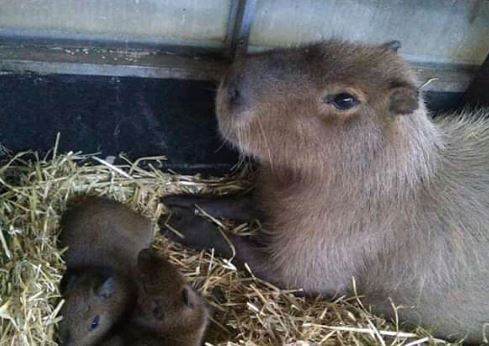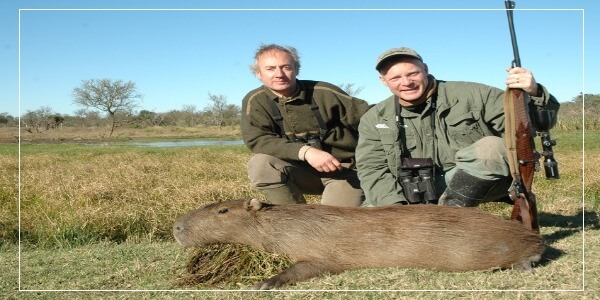As an avid animal lover myself, I understand the fascination that these gentle giants can evoke. With their unique appearance, playful nature, and undeniable charm, capybaras have captured the hearts of many aspiring pet owners. However, navigating the legal landscape and understanding the requirements is important before considering Capybara ownership.
This blog post explores the legality and regulations surrounding capybara ownership in Texas. We’ll dive into the world of permits, licenses, and any potential restrictions that may apply. Additionally, we’ll uncover capybaras’ essential housing and care requirements, shedding light on their dietary needs, suitable enclosures, and vital veterinary care.
Can You Own a Capybara in Texas?
Yes, owning a capybara as a pet in Texas is possible, but certain regulations and requirements need to be met. Capybaras are considered exotic animals; ownership of such animals in Texas falls under the Texas Parks and Wildlife Department (TPWD) jurisdiction.
To legally own a capybara in Texas, individuals typically need to obtain a permit from the TPWD. The permit application process involves meeting specific criteria, such as providing proof of secure housing with appropriate enclosures, meeting zoning requirements, and demonstrating the ability to provide proper care for the animal. The TPWD may also inspect the premises to ensure compliance.
What Permits or Licenses are Required to Own a Capybara in Texas?
The specific permits and licenses needed can vary depending on the county or city, so it is essential to research and consult local authorities for accurate information. Here is a general overview of the permits and licenses that may be required:
- Exotic Animal Permit: Texas requires individuals to obtain an Exotic Animal Permit from the Texas Parks and Wildlife Department (TPWD) to own a capybara. This permit is necessary for keeping any exotic animal species, including capybaras, as pets. The permit application process typically involves providing information about the animal, it’s housing, and the purpose of ownership.
- County or City Permits: In addition to the state-level Exotic Animal Permit, some counties or cities in Texas may have their regulations regarding Capybara ownership. It is important to check with the local animal control or zoning department to determine if additional permits or licenses are required. This step helps ensure compliance with local ordinances.
- Facility Inspection: As part of the permit application process, authorities may conduct inspections of the Capybara owner’s facilities. This inspection ensures that the animal is kept in appropriate conditions and that the owner can meet the necessary care requirements.
- Compliance with Zoning Laws: Zoning laws may play a role in capybara ownership. Certain residential areas or neighborhoods may have specific regulations or restrictions on keeping exotic animals. Verifying whether Capybara ownership is allowed within the chosen location is crucial.
- Record-Keeping and Reporting: Capybara owners may be required to maintain accurate records of the animal’s acquisition, sale, and movement. Reporting any changes in ownership or relocation may be necessary to remain in compliance with regulations.
How Do Capybaras Defend Themselves?
Can You Own a Capybara in Pennsylvania?
Are There Any Restrictions on Capybara Ownership In Texas?
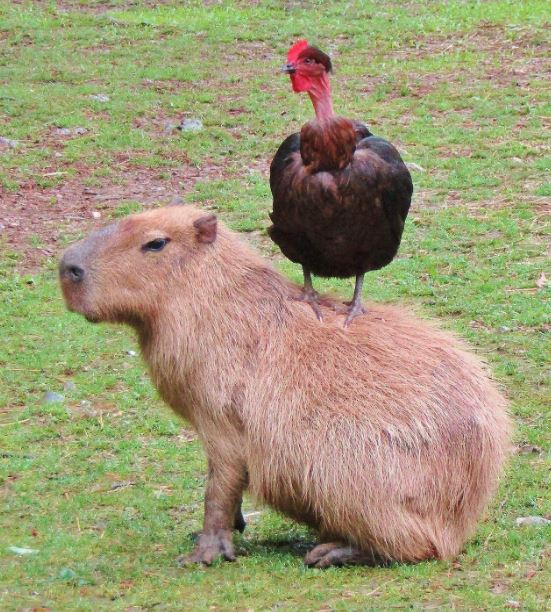
Yes, there are restrictions on capybara ownership in Texas. Texas considers capybaras exotic animals, so their ownership is subject to specific regulations. Individuals must obtain a valid permit or license to own a capybara in Texas legally.
The Texas Parks and Wildlife Department (TPWD) is responsible for issuing permits for exotic animal ownership, including capybaras. Prospective Capybara owners must apply the TPWD and comply with the requirements. These requirements may include providing proof of secure and appropriate housing for the capybara, meeting enclosure size specifications, and demonstrating knowledge of capybara care and husbandry.
Additionally, there may be restrictions on the owner’s age, the number of capybaras that can be owned, and specific zoning regulations that dictate where capybaras can be kept. These restrictions are in place to ensure the welfare of the animals and the safety of both the owners and the public.
Potential capybara owners in Texas need to familiarize themselves with these regulations and follow them diligently. Failure to comply with the applicable laws and regulations can result in legal consequences, including fines or removing the animal from the owner’s possession.
It’s worth noting that regulations regarding exotic animal ownership can change over time, so staying updated on the latest laws and requirements is essential. Prospective Capybara owners in Texas are encouraged to contact the TPWD or consult legal professionals specializing in exotic animal ownership for the most accurate and up-to-date information.
What are the Housing and Care Requirements for Capybaras In Texas?
Housing and care requirements for capybaras in Texas are crucial to ensure their well-being and compliance with legal regulations. Capybaras are social animals that require spacious enclosures and specific care. Here are the key aspects to consider:
- Enclosure: Capybaras need a large, secure outdoor enclosure to mimic their natural habitat. The enclosure should provide ample space for exercise and grazing. It should be enclosed with sturdy fencing to prevent escape and protect them from predators.
- Swimming Access: Capybaras are semi-aquatic animals and enjoy swimming. Therefore, their enclosure should include a shallow, easily accessible pool or pond for them to cool off and engage in their natural behaviors.
- Vegetation and Shelter: The enclosure should have a variety of vegetation, including grass, shrubs, and edible plants. This allows capybaras to graze and forage, providing mental stimulation and meeting their dietary needs. Additionally, providing shelters, such as large dog houses or natural cover, allows them to seek shade or take shelter during extreme weather conditions.
- Diet: Capybaras are herbivores, primarily consuming grasses, aquatic plants, and some fruits and vegetables. A balanced diet should include fresh hay, commercial capybara pellets, and various vegetables and fruits. It’s essential to consult with a veterinarian or exotic animal specialist to ensure proper nutrition.
- Social Interaction: Capybaras are highly social animals and thrive in groups. Keeping them in pairs or small groups is recommended. Social interaction is crucial for their mental well-being, and they may exhibit stress or behavioral problems if kept alone for extended periods.
- Veterinary Care: Regular veterinary check-ups are essential to monitor the capybara’s health and prevent diseases. Find a veterinarian experienced in treating exotic animals, as they will have the necessary knowledge to provide appropriate care.
- Environmental Enrichment: Enrichment activities should be provided to stimulate capybaras mentally and physically. This can include toys, puzzles, and hiding spots to encourage natural behaviors and prevent boredom.
Capybara Baby Price and Factors To Consider
Can You Litter Train a Capybara?
What Are The Risks and Challenges of Owning a Capybara in Texas?
- Legalities and Permits: The first challenge is navigating the legalities surrounding capybara ownership in Texas. These animals may be classified as exotic pets, requiring specific permits or licenses. Obtaining the necessary paperwork can be a time-consuming and sometimes costly process.
- Space and Habitat: Capybaras are large rodents that require ample space to roam and thrive. Providing them with a suitable habitat can be challenging, especially if you lack sufficient outdoor space. Constructing a proper enclosure with adequate fencing and water features to accommodate their semi-aquatic nature can be demanding and expensive.
- Social Needs: Capybaras are highly social animals and thrive in the company of their kind. Owning a single capybara may lead to loneliness and behavioral issues. Finding compatible capybara companions can be challenging, and introducing them successfully requires careful planning and supervision.
- Diet and Specialized Care: Capybaras have specific dietary requirements, including a high-fiber diet of grasses and vegetation. Meeting their nutritional needs can be challenging, especially in areas with limited food sources. Additionally, their dental care and grooming requirements should not be overlooked.
- Health Concerns: Capybaras can be susceptible to various health issues, including parasites, dental problems, and skin conditions. Finding a veterinarian with experience treating capybaras may be difficult, and veterinary care can be expensive.
- Public Perception and Safety: While capybaras are generally docile and friendly, their large size can pose safety concerns. Their curious and energetic nature may inadvertently cause harm or damage. Moreover, some people may not be familiar with capybaras and could perceive them as dangerous or exotic, leading to potential conflicts or legal issues.
Are alternative Pets Similar to Capybaras That Can Be Legally Owned in Texas?
- Patagonian Mara: Patagonian maras, also known as the Patagonian cavy, resemble capybaras in appearance and behavior. They are social animals and can be kept in pairs or small groups. These herbivores require spacious enclosures with plenty of grassy areas to roam and graze.
- Chinchillas: Chinchillas are small rodents known for their soft fur and playful nature. While they have different physical characteristics than capybaras, they share similarities in their social behavior. Chinchillas are best kept in pairs or small groups and require a properly sized cage with plenty of hiding spots and opportunities for exercise.
- Guinea Pigs: Guinea pigs are popular pets similar in size and social behavior to capybaras. They are known for their sociable nature and can be kept in pairs or small groups. Guinea pigs require a spacious cage with appropriate bedding, hiding spots, and opportunities for exercise.
- Rabbits: Rabbits can be wonderful companions and provide a similar experience to capybara ownership. They come in various sizes and breeds, allowing for various choices. Rabbits require a properly sized enclosure, opportunities for exercise, and a balanced diet of hay, vegetables, and pellets.
- Miniature Pigs: While capybaras are illegal in Texas, some individuals may consider owning a miniature pig. These smaller versions of domestic pigs can make affectionate and intelligent pets. However, it’s important to note that they still require considerable space, proper care, and attention to their dietary needs.
Can Capybaras Eat Rice? – [Expert Advice]
Capybara Meat And Its Culinary Uses – [Every You Should Know]
Baby Capybara Encanto – What’s The Capybara Name In Encanto?
Conclusion
Capybaras are social animals that require ample space, a specific diet, and companionship to thrive. They are best suited for experienced owners who can provide a suitable environment and care for their unique needs. Additionally, capybaras are exotic animals that can pose risks to the owners and the environment if they are not properly managed.
It is crucial to respect and abide by the laws and regulations in place to protect the well-being of animals and ensure public safety. Suppose you are interested in capybaras or any other exotic pets. In that case, it is advisable to research the laws and regulations specific to your state and consult with local authorities or wildlife agencies to ensure compliance.

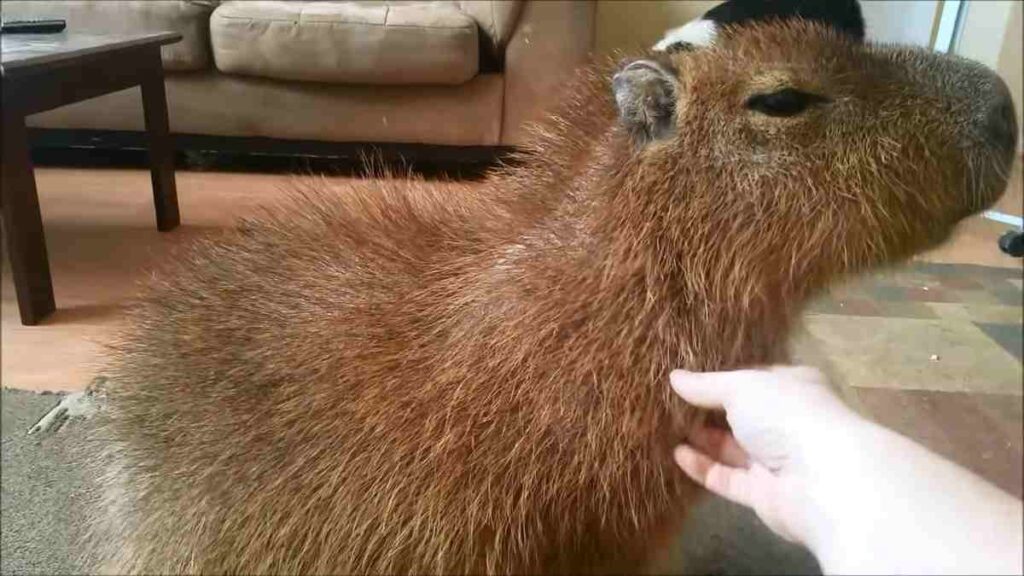
![Capybara Meat And Its Culinary Uses - [Every You Should Know] Capybara Meat & Culinary Uses](https://capybaratips.com/wp-content/uploads/2023/03/Capybara-meat-250x200.webp)
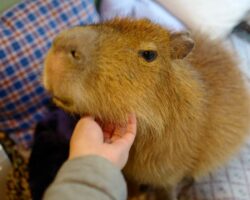
![How Big Should a Capybara Enclosure Be? - [Sizes & Design] How Big Should a Capybara Enclosure Be](https://capybaratips.com/wp-content/uploads/2023/03/Capy-Enclosure-250x200.webp)
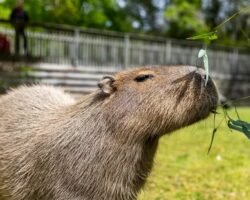
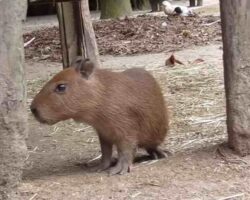
![How To Get A Capybara In China [Steps By Steps] China-Capybara](https://capybaratips.com/wp-content/uploads/2023/03/China-Capybara-250x200.webp)
